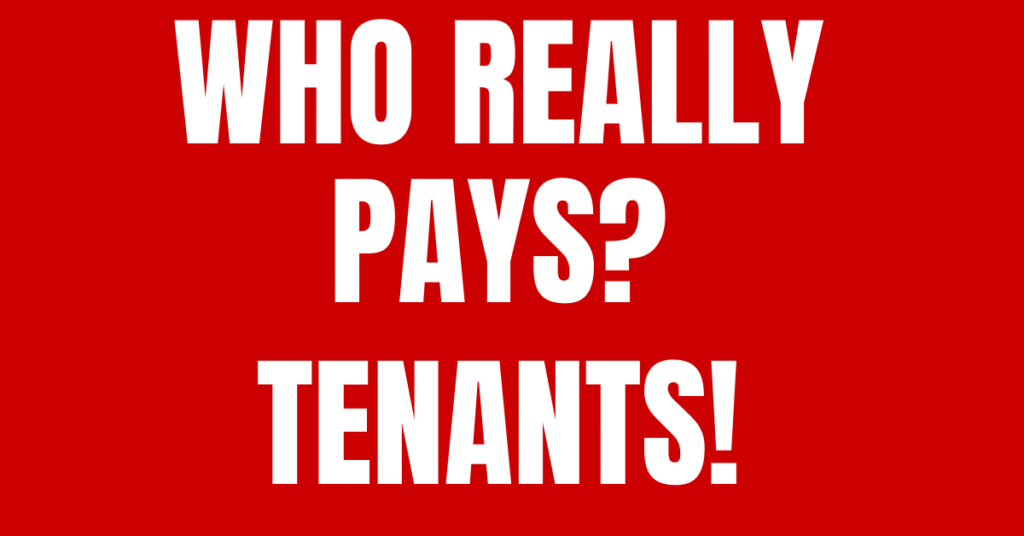
The Truth About National Insurance on Rental Income: Why Landlords and Tenants Should Be Concerned
The government’s latest idea—charging National Insurance (NI) on rental income—is being presented as a “fair contribution” from landlords.
But let’s be honest: this is nothing more than a hidden tax grab that could devastate both landlords and tenants.
It’s yet another example of how landlords are treated as businesses when it benefits the Treasury, but stripped of business benefits when it doesn’t.
Landlords Already Under Pressure
The reality is landlords are already being squeezed from every direction:
- Mortgage rates have soared in the last two years (Bank of England data) making buy-to-let far less profitable.
- EPC requirements are becoming stricter, forcing landlords to spend thousands on upgrades or risk being unable to rent out their homes (Gov.uk EPC guidance).
- Section 24 restrictions mean mortgage interest relief is limited, eating into net profits (Which? guide on Section 24).
And now? Adding National Insurance could cost the average landlord over £1,000 a year. For many small and medium landlords, this is the breaking point.
The Domino Effect: What Happens When Landlords Sell
If landlords decide enough is enough, they’ll sell their rental properties.
When they do, rental stock shrinks. Fewer homes available to rent means higher demand and higher rents. That’s basic economics.
The government knows this. Yet they continue, because the outcome suits them:
- Small landlords exit the market.
- Large corporate landlords with lobbying power and deep pockets step in.
- Tenants are left with less choice, higher rents, and reduced flexibility.
Is this really about fairness? Or is it about consolidating housing power into fewer hands?
Who Really Pays the Price?
It’s not just landlords footing the bill. Tenants will ultimately pay.
Every new tax, every extra cost, every bit of red tape gets passed on.
- Rents climb.
- Supply dries up.
- Families are trapped in a cycle of paying more for less.
The government frames this as “protecting renters,” but the reality is the opposite—it’s making renting harder, scarcer, and more expensive than ever.
A Broken Promise from Labour
Labour pledged no National Insurance increases (BBC analysis), yet here we are.
The language may change, but the outcome is the same: ordinary people get squeezed while the system shifts in favour of corporate landlords.
This isn’t about protecting tenants. It’s about controlling cash flow—keeping hardworking people poorer, more dependent, and easier to govern.
Why AAR Homes is Speaking Out
At AAR Homes, we see the reality every day: landlords under pressure, facing impossible choices, and tenants suffering the knock-on effects.
Policies like this push landlords into corners—leading to repossessions, forced sales, and exits from the rental market. That reduces housing stock and drives up rents.
That’s why we exist: to provide real solutions for landlords who feel trapped. Whether it’s through a discreet, hassle-free sale or creative ways to exit the market, we help landlords move forward without being crippled by policy changes.
- If you’re a landlord who feels like this is the last straw, don’t wait until the Autumn Budget lands.
- We can help you explore your options now—so you’re in control, not the Treasury.
- Landlords get pushed out.
- Tenants pay higher rents.
- Corporate landlords tighten their grip.
📩 Learn more here: Have a property to sell or rent? | AAR Homes
Final Thought
On paper, NI on rental income might look like a “win” for the Treasury—raising an extra £2bn. But in reality, it’s a lose-lose:
It’s not fairness. It’s short-sighted policy at its worst.
And unless landlords take action now, the coming changes could reshape the rental market for good—and not in the interests of ordinary people.
